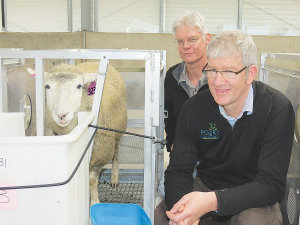The standard Global Warming Potential (GWP) measure can be misleading when applied to livestock methane emissions, particularly when these are being reduced.
That's the conclusion of updated research, recently published by the Oxford Martin Programme on Climate Pollutants. Authored by Myles Allen and John Lynch of the University of Oxford, along with Michelle Cain of Cranfield University and David Frame from Canterbury University, this latest paper follows up on the finding these scientists made back in 2018.
Their research found that a revised usage of GWP - GWP* which uses the same metric values interpreted in a new way, provides a more accurate indication of the impact of short-lived pollutants on global temperature.
The updated research also shows that per molecule in the atmosphere, methane has a stronger global warming impact than CO2.
"That is why methane from ruminant livestock has a warming impact on climate - a even though it is part of a natural carbon cycle," the paper explains.
However, the research found that emission comparisons are often based on GWP100 (the 100-year Global Warming Potential), which equates one tonne of methane (tCH4) with 28 tonnes of CO2 (tCO2).
It adds that GWP20 is sometimes used, which equates 1 tCH4 with 84 tCO2.
"However, neither GWP100 nor GWP20 accounts for the very different behaviour of methane and CO2," it explains.
The paper highlights how GWP* was developed to accurately represent the increased warming impact of each methane molecule, while taking into account its short lifespan.
"To calculate CO2-warming-equivalent emissions using GWP*, current methane emissions are mutliplied by a factor of 8 and added to any net methane emisions increase or decrease over the previous 20 years multiplied by 120," it says.
"Expressing methane emissions are CO2-equivalent using the GWP100 metric, which equates one tonne of methane with 28 tonnes of CO2, overstates the impact of a constant methane source on global temperature by a factor of 3 to 4 and understates the impact of a new methane source by a factor of 4 to 5 over the 20 years."
The research says so-called "warming-equivalent" metrics, such as GWP* or CGTP (Combined Global Temperature change Potential), can overcome this problem.
"Comparing greenhouse gases as 'CO2-equivalent' using the 100-year Global Warming Potential (GWP100) misrepresents the warming impact of methane," the paper adds. "Expressing methane emissions as 'CO2-warming-equivalent' reflects the actual impact of cattle and sheep farming on global temperatures much more accurately."
The research confirms that increasing methane emissions does cause substantial warming. However, it adds that by reducing methane emissions faster than 3% per decade acts to reduce global temperatures.
The paper argues setting a separate target for methane emissions will help clarify the implications of emission goals for global temperature.










